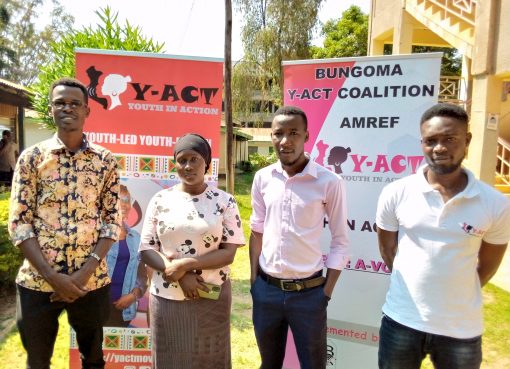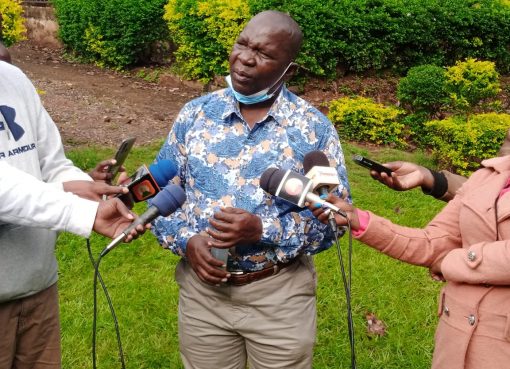Government-owned Tea Research Institute (TRI) in Kericho discovered a purple tea clone in 2011 that would provide an opportunity for diversification and increased competitiveness of Kenyan tea.
The research agency operating in the ambit of the Kenya Agricultural Livestock Research Organization (KALRO) postulates that purple tea has higher yields, is more adaptive to drought, and can fetch up to ten times more than processed green tea at the international market.
Most factories and farmers have not fully embraced diversification of the teas even as current earnings of the black tea in the country continue to decline.
Last year’s tea bonus payout caused uproar among tea farmers in the country with farmers taking home an average of Sh41.27 per kg of green leaf compared to an average of Sh52 the previous year.
To navigate the fluctuating green leaf prices farmers have been advised to grow specialized teas that fetch way above the conventional CTC black tea in the international market due to its medicinal properties.
Kenya Institute for Public Policy Research and Analysis (KIPPRA) in a policy brief No.3/2017-2018 says that to harness the full benefits of purple tea, more effort is needed to reduce the cost of setting up specialized factories, developing the necessary technical capacity for processing as well as address the current market barriers.
According to the research agency, the global market for black Cut, Tear and Curl (CTC) is saturated, competition is stiff, and auction prices are highly volatile, leading to declining earnings.
However, there are a few small-scale farmers and local investors who have turned to growing specialized teas as current earnings of black tea continue declining.
Tea factories that have already ventured into specialized tea production attest of good returns compared to those that have continued producing black tea.
Joseph Arithi, Kangaita Tea Factory Unit Manager of Kangaita Tea Factory in Kirinyaga says the factory that started production of orthodox teas in 2002, has in the recent past expanded into other value added teas.
Currently, the 55-year-old company under the Kenya Tea Development Agency (KTDA) is undertaking 12 percent of the total tea produced by the farmers, which according to him will help in solving the current price crisis.
The manager says returns from specialized teas are impressive and added in the future will help in taming the declining tea earnings.
“In 2018 we managed to pay farmers an average of Sh36.35 during the final payment (bonus). Going forward we expect the earnings will improve as prices of specialized teas continue to improve,” he said during a recent interview in his Kangaita office.
Arithi explained that Kangaita started with black orthodox tea, and subsequently ventured into other speciality products, namely purple tea, white and premium tea, though in small quantities.
“The idea of diversifying is to add value to green leaf that we are receiving from farmers since the Black CTC market is facing challenges owing to over production.”
The global market, he said is suffering from oversupply thus affecting the prices. In addition, the traditional markets of Pakistan, Egypt, U.K and Sudan have been experiencing political and security conditions such as the ISIs crisis and hence contributing to low uptake of the Kenya tea.
Arithi says that in the 2018/2019 production year, out of 18 million kilogrammes green leaf quantity, the company realized it produced 4.3 million kgs of made tea out of which 480,968 kgs was value added.
More tea processors in the smallholder, multinational and independent categories have taken more deliberate efforts towards diversifying their tea processing to other teas including Orthodox, Purple, White and Green teas.
Agriculture and Food Authority (AFA) Interim Director General Mr. Anthony Mureithi says that the number of Black CTC processing factories which have sought to be licensed to venture in processing other teas has also increased and this will improve the production of orthodox and green teas into the future which is a commendable break from the Black CTC overreliance.
“Specialized teas -Orthodox, Purple and Green are the new specialties farmers have turned to benefit from premium prices offered at the international market in order to shield them against the diminishing earnings from Black tea”, Mureithi says.
Currently, Kangaita, Michimikuru in Meru, Itumbe in Kisii, Kiru in Muranga, Thumaita and Gitugi in Nyeri tea factories are manufacturing orthodox teas.
A few others are also installing the orthodox production lines including Kimunye, Chinga, Kagwe and Matunwa. The main markets for orthodox teas are Russia, Germany, USA, Dubai, Taiwan, Turkey, Iran, The Czech Republic, Kazakhstan and Canada.
Average prices of orthodox teas in 2018 per Kg reached Sh370 compared to Sh281 while other specialized teas though produced in small quantities fetch as high as Sh7, 000 (USD70) for the white tea, Sh5, 000 (USD50) for premium white and Sh1, 000 (USD10) for purple tea at factory level.
Arithi says that purple tea derives its name from its distinctive, purple-reddish leaves associated with high levels of anthocyanins, the same antioxidants that give colour to foods such as blueberries, cranberries, grapes, and even red cabbage or eggplants.
Wilson Waithaka, Production Assistant at Kangaita tea factory said that demand for specialty tea is picking up with local companies like KETEPA buying to meet their market among others especially because of the health benefits
“If I can move two million of green leaf through orthodox manufacture it will definitely reduce on the volume of CTC teas, thus stabilizing the market,” said Waithaka.
He explains that the whole process of just production of tea normally takes around 18 hours and this includes 8-12 hours withering, rolling and 3 hours fermentation before drying that takes 30 minutes.
The specialty teas which according to experts have health benefits because of the level of oxidants has seen emergence of cottage industries coming up.
Gatanga Cottage Industries Limited one of the licensed manufacturers of specialized orthodox teas also confirms making high returns.
The company, which started manufacturing specialized teas in 2018 though, is yet to achieve its full production capacity of four tonnes per day and is only manufacturing two tonnes.
Elizabeth Njeri, the Factory manager says that the company has planted 30 acres under purple tea and sources more from 69 contracted farmers.
“We pay farmers Sh100 every month for a kilogramme of purple tea they deliver to us unlike the normal green tea where farmers get between Sh40 and Sh50 per kg said Njeri in her Gatanga office.
Purple tea, she explained has many health benefits such as inhibiting the growth of cancer cells in human bodies.
“Given the way our people are dying because of cancer, it’s something to try and have it in our system. It regulates the sugars in our bodies for those suffering from diabetes and hypertension, detoxes the body system and also can be used as a weight management agent”, she said
Further, Njeri noted that purple tea contributes calcium and thus enables consumers to keep fit, rejuvenates brains and some companies are using it to manufacture lotions because of anti-aging properties.
“The purple tea market globally is lucrative and all our purple produced tea is exported to China and soon we are scouting for other markets like USA and Canada. We process specialty orthodox teas -purple orthodox, black orthodox tea, green orthodox, yellow orthodox, oolong orthodox, white orthodox, purple tips normal, hairy and golden,” she said.
Canada and USA, Njeri said, have taken samples of the specialized teas, will give feedback in February next year, and added this is likely to trigger high prices and thus benefit the farmers.
Consumption of purple tea in Kenya according to the two factories is low owing to lack of awareness among Kenyans.
Government, they say is yet to aggressively educate consumers about the same or carry out formal advertisements but Njeri added that her company carries out awareness campaigns locally in churches, schools, social meetings educating farmers on purple tea benefits and encouraging them to plant since it has a good market.
The United Nations Food and Agriculture Organization (FAO) say prices of black tea may drop by as much as 40 percent by 2023 if producers around the world increase supply by about 5 percent.
Kenya now has to promote domestic demand and farmers diversify into specialty teas to protect their earnings.
By Wangari Ndirangu




